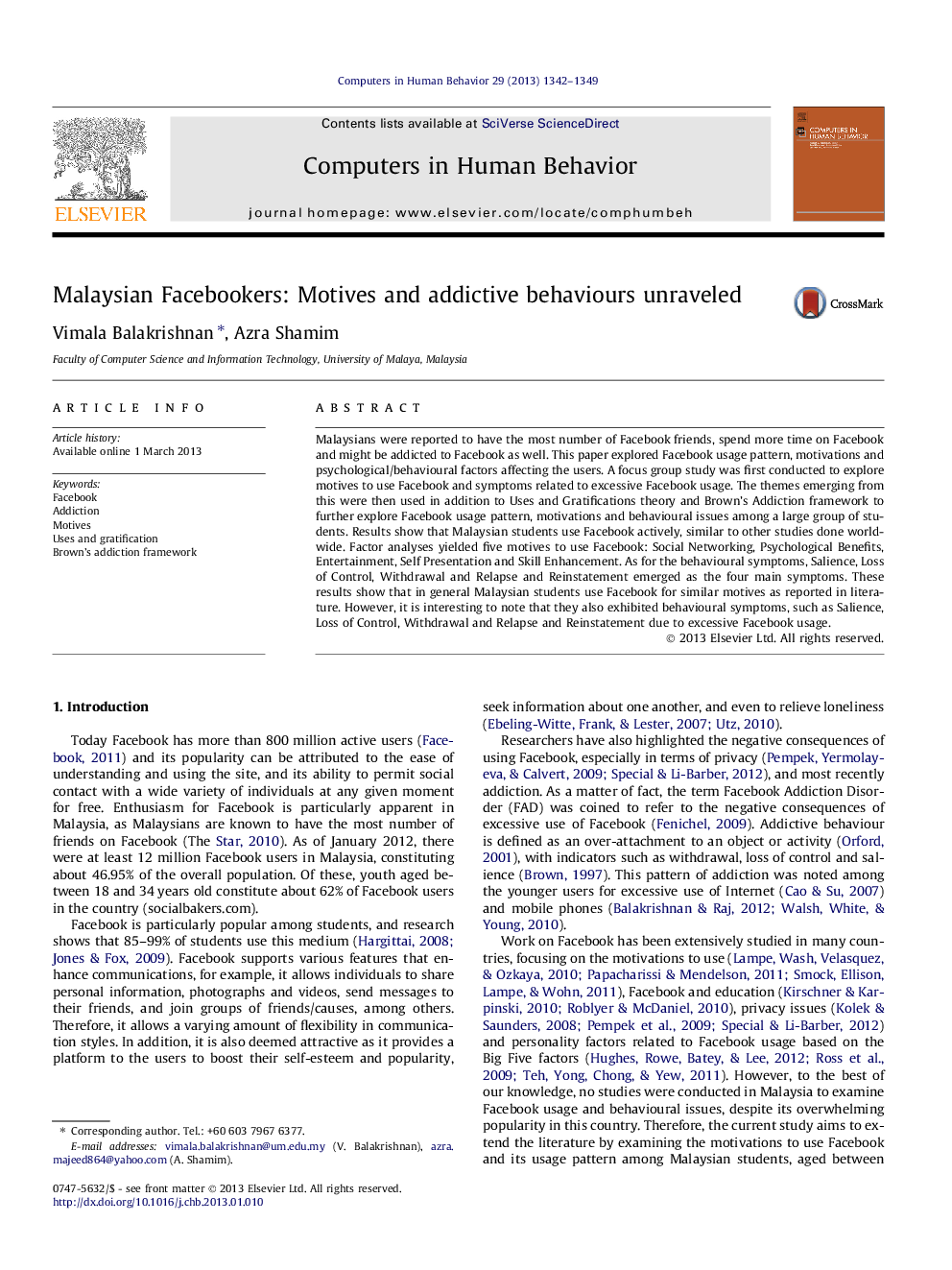| کد مقاله | کد نشریه | سال انتشار | مقاله انگلیسی | نسخه تمام متن |
|---|---|---|---|---|
| 351031 | 618462 | 2013 | 8 صفحه PDF | دانلود رایگان |

Malaysians were reported to have the most number of Facebook friends, spend more time on Facebook and might be addicted to Facebook as well. This paper explored Facebook usage pattern, motivations and psychological/behavioural factors affecting the users. A focus group study was first conducted to explore motives to use Facebook and symptoms related to excessive Facebook usage. The themes emerging from this were then used in addition to Uses and Gratifications theory and Brown’s Addiction framework to further explore Facebook usage pattern, motivations and behavioural issues among a large group of students. Results show that Malaysian students use Facebook actively, similar to other studies done worldwide. Factor analyses yielded five motives to use Facebook: Social Networking, Psychological Benefits, Entertainment, Self Presentation and Skill Enhancement. As for the behavioural symptoms, Salience, Loss of Control, Withdrawal and Relapse and Reinstatement emerged as the four main symptoms. These results show that in general Malaysian students use Facebook for similar motives as reported in literature. However, it is interesting to note that they also exhibited behavioural symptoms, such as Salience, Loss of Control, Withdrawal and Relapse and Reinstatement due to excessive Facebook usage.
► The study explored Facebook motives and psychological symptoms among students.
► Based on Uses and Gratifications Theory and Brown’s Addiction Framework.
► Motives: Social Networking, Psychological Benefits, Entertainment, Self Presentation, Skill Enhancement.
► Addictions: Salience, Loss of Control, Withdrawal and Relapse and Reinstatement.
Journal: Computers in Human Behavior - Volume 29, Issue 4, July 2013, Pages 1342–1349